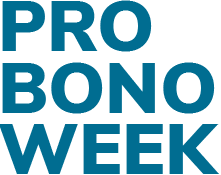A young Latvian couple were working in a chip shop in South Wales’ Rhondda Valley without pay. The owner exploited them, threatening to have them deported unless they worked over 100 hours a week. The couple worked so much that they rarely left the flat about the shop, which was in a terrible condition, with central heating and no bed.
The owner kept promising he would pay them when the business turned a profit. After working unpaid for almost 32 months, the couple finally objected to their appalling living conditions. The owner threatened them with deportation.
Fortunately, the couple sought legal advice and specialist employment solicitor Nathan Vidini offered pro bono assistance under the ELIPS scheme (Employment Tribunal Litigant in Person Support Scheme). Recognising that the case fell under the Modern Day Slavery Act 2015, he assisted for two years.
When the case came to the Employment Tribunal, with the assistance of barrister George Pollitt of Iscoed Chambers, the couple had the legal representation that they needed. They were awarded a substantial amount both for loss of earnings and for the physically and emotionally damaging experience they had suffered.
This was the first Modern Day Slavery Case in Wales, and for the couple it was lifechanging. In a heartfelt thank you card, the couple described how Nathan and George had ‘saved [their] lives’ and were the ‘best people in the world’. Thanks to the pro bono assistance they received, the couple were able to move forward with their lives and they named their son – who was born while the case was progressing – Nathan.
